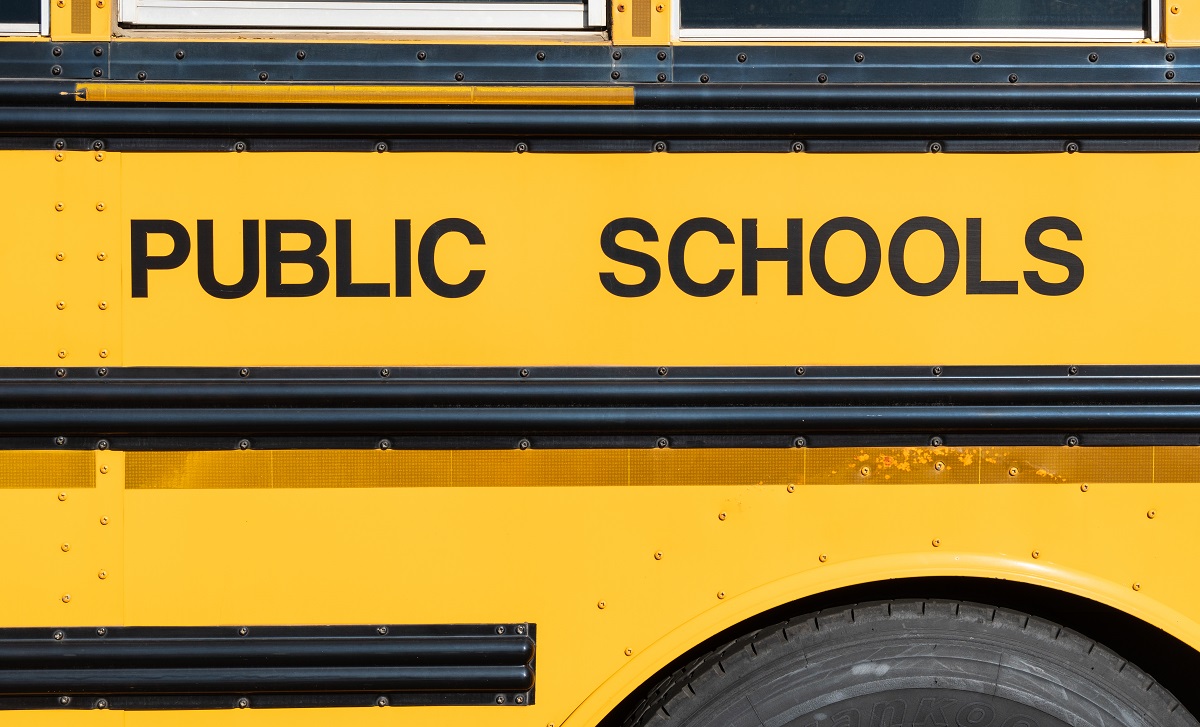CSBA hosted a webinar, “AB 1078 is more than meets the eye: What governing boards need to know,” on Sept. 28, just three days after Gov. Gavin Newsom signed the bill into law, which went into effect immediately. The webinar featured experts from CSBA’s Governmental Relations, Legal and Policy and Governance Technology Services departments reviewing what is known so-far about the new law and its immediate impact on governance teams.
Existing law
Current law requires that local educational agencies provide their students with “sufficient textbooks or instructional materials,” meaning that each pupil has a standards-aligned textbook or instructional materials, or both, to use in class and to take home. Existing law also requires that an LEA annually determine via a publicly adopted resolution whether each pupil in each school has sufficient textbooks or instructional materials, or both, by the eighth week of instruction after the school year has started.
Instructional materials must be aligned to the content standards adopted by the State Board of Education (SBE) in math, science, history, social science and English language arts. LEAs may use Local Control Funding Formula funds or Proposition 20 lottery funds to purchase instructional materials.
What’s new
After multiple iterations, the enacted version of the bill allows for complaints to be filed against LEAs that limit or prohibit the use of inclusive textbooks, instructional materials or school library materials in violation of the California FAIR (Fair, Accurate, Inclusive, and Respectful) Education Act. Enacted in 2011, the act provided for “a study of the role and contributions of both men and women, Native Americans, African Americans, Mexican Americans, Asian Americans, Pacific Islanders, European Americans, lesbian, gay, bisexual, and transgender Americans, persons with disabilities, and members of other ethnic and cultural groups, to the economic, political, and social development of California and the United States of America, with particular emphasis on portraying the role of these groups in contemporary society.”
CSBA Deputy General Counsel Kristin Lindgren said the FAIR Act comes with flexibility in how districts fulfill the requirements and show those groups contributions; however, “prohibiting materials that show contributions of those historically marginalized groups is prohibited under AB 1078,” and qualifies as discrimination.
“A Uniform Complaint, which is a complaint that individuals can file alleging discrimination in district programs and activities, can be filed against an LEA for failing to meet this requirement,” Lindgren said. “In addition, Uniform Complaints typically are handled through the district first — the district gets to investigate and make a resolution or determine no resolution is needed, and then complainant could appeal to the CDE.” However, under AB 1078, Uniform Complaints on this basis may be filed directly with the State Superintendent of Public Instruction, so long as the complaint identifies the basis for filing directly with the SSPI and provides evidence that supports that basis.
With respect to the sufficiency of instructional materials, AB 1078 adds an additional ability for a complaint filed under the Williams Act to be submitted directly to the SSPI. The Williams Act, which originated from the Eliezer Williams, et al., vs. State of California, et al. case, was a class action lawsuit filed against the state alleging that it failed to provide public school students with equal access to instructional materials, safe and decent school facilities, and qualified teachers. It was settled in 2004and was adopted via a series of legislative measures, which, among other provisions, established a complaints process whereby a complaint (Williams complaint) could be filed against an LEA alleging that the LEA is failing to provide sufficient access to textbooks and instructional materials. Under current law, a Williams complaint, other than a complaint regarding conditions of facilities, is required to be reconciled at the LEA level. However, AB 1078 provides for immediate state intervention by the SSPI in a Williams complaint against a school district regarding sufficient instructional materials, including the assessment of financial penalties upon school districts that do not provide sufficient textbooks or instructional materials to its students.
As to both Uniform Complaints and Williams complaints, the language of the bill provides little clarity as to what would be considered a sufficient basis for a complaint, nor what standard of evidence would be deemed sufficient to allow the SSPI to directly intervene. It also does not require the SSPI to inform an LEA that a complaint has been filed.
In addition to this option of immediate escalation, AB 1078 requires new authority responsibilities for county superintendents, some of which may overlap with the new authority granted to the SSPI.
Specifically, if the county superintendent determines a school district has insufficient instructional materials due to a school district resolution or an unresolved Williams Act complaint, the county superintendent must take the following actions:
- Provide the school district with the opportunity to remedy the deficiency no later than the second month of the school term.
- If not remedied, they must request the CDE to purchase textbooks or instructional materials necessary to comply with the sufficiency requirement, as a loan to the school district and in consultation with the district.
Under new Section 60150 of the Education Code, specific to state intervention, the SSPI is permitted to impose a fiscal penalty equivalent to what the district would have received for the 2012–13 fiscal year for the Instructional Materials Block Grant pursuant to provisions in the 2012 Budget Act. AB 1078 is unspecific as to whether there is an opportunity for the school district to remedy the failure to provide instructional materials before action by the SSPI. In addition, both the county superintendent and SSPI are permitted to require CDE to purchase textbooks/instructional materials for a district with insufficient instructional materials, which will be considered a loan to the school district. If the school district does not repay the loan “based upon an agreed-upon repayment schedule with the SSPI,” then an equivalent amount will be deducted from “the next principal apportionment of the school district or from another apportionment of state funds.”
CSBA advocacy
CSBA was successful in having provisions removed in earlier versions of the bill that would have eroded local control. Among the provisions struck were requirements that a school district governing board get approval from the SBE before making changes to district textbooks and instructional materials and a requirement that individual board members be called out by name in a notice posted prominently on the district’s and county office of education’s website homepage about the textbook deficiency.
However, the bill still allows an insufficiency at a school district to be the subject of multiple independent complaints, investigations and potentially inconsistent enforcement actions taken by local, county and state officials. Furthermore, a district may not be given time to investigate or correct the issue — consistent with the requirements in existing statutes and regulations — before the SSPI intervenes. Overlapping complaints may also result in conflicting remedy proposals and distract district leaders and staff from the needs of students, resulting in greater loss of educational resources.
Although well-intended in creating a tool to ensure students have access to textbooks and instructional materials that reflect the contributions of the diverse individuals and communities that make up California, AB 1078 may result in unintended consequences for LEAs by potentially making it harder for them to address textbook insufficiency.





